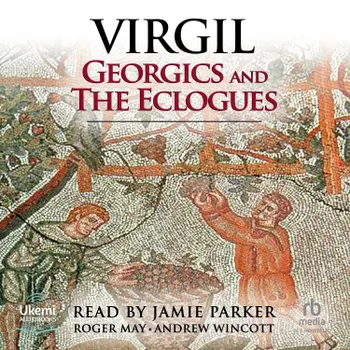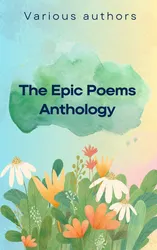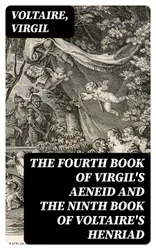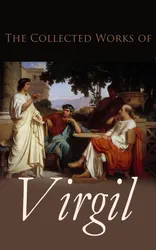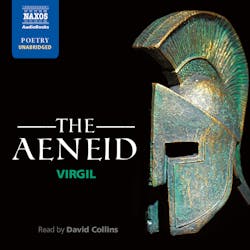Though it is for the sparkling epic, Aeneid, that the Roman poet Virgil is best known, it was these two poems, The Eclogues and Georgics, which first established his reputation. Cast in the tradition of pastoral poetry, The Eclogues were written between 41 BCE and 37 BCE when Virgil (Publius Vergilius Maro, to give him his full name) was in his thirties. The Eclogues (the word means ‘Selections’ in Greek) contain 10 poems, a combination of dialogues and monologues. They drew on the ‘bucolic’ (rural) style of the ancient Greek poet Theocritus (c 300BCE-c 260 BCE), but Virgil weaves many references to contemporary Roman events. Though The Eclogues have perhaps existed in the shadow of Georgics, they have been highly regarded and studied by academics and poets down the centuries. They are presented here in the 20th century translation by the British poet R. C. Trevelyan, and read in multi-voice format as they were originally written, with clearly delineated characters bringing the content to life with verve and temperament.
Though also pastoral in nature, Georgics is very different in style. Published in 29 BCE, the main subject is agriculture (the title reflects the Greek word ‘georgika’, agricultural things), and vigorously promotes traditional means of farming. Again, Virgil weaves into his verse cultural and political themes. Cast in four Books, the dynamic expression draws on numerous Classical, mythical and contemporary references, while explaining the best methods for ploughing, animal husbandry, observing weather patterns, the life of bees and the like. Increasingly, the rise and fall of man’s endeavours can be reflected in the vicissitudes of agricultural life. The 20th century translation of Georgics used on this recording is by the highly respected translator of Latin poetry, Smith Palmer Bovie. It is read by Jamie Parker. Closer study of both works while listening is possible through the complete texts that come with the recording.
PLEASE NOTE: When you purchase this title, the accompanying PDF will be available in your Audible Library along with the audio.
